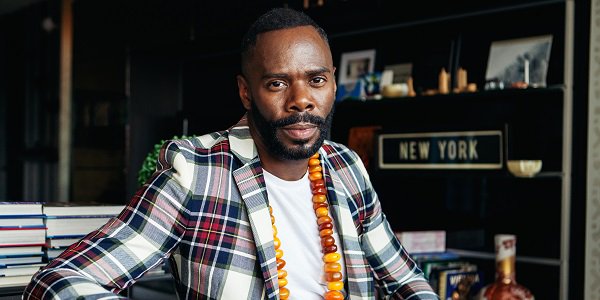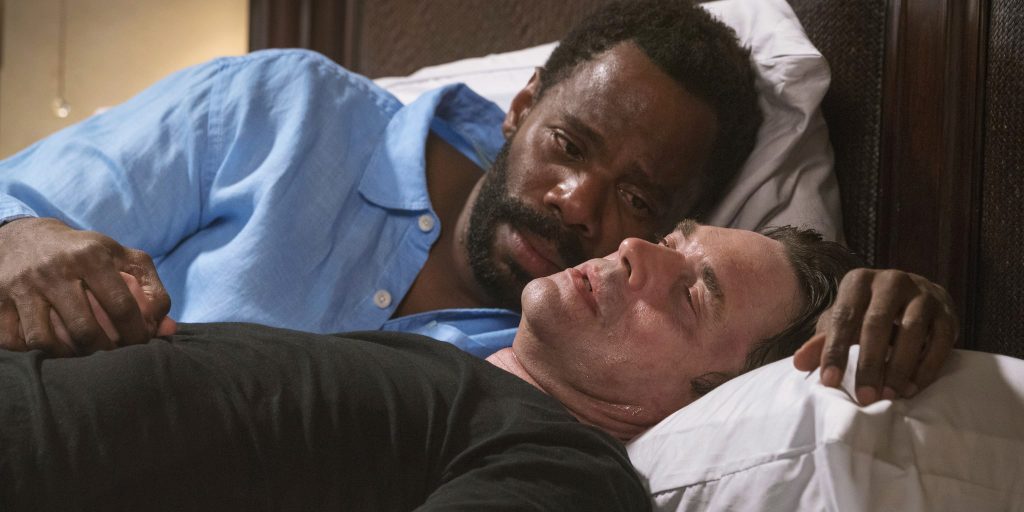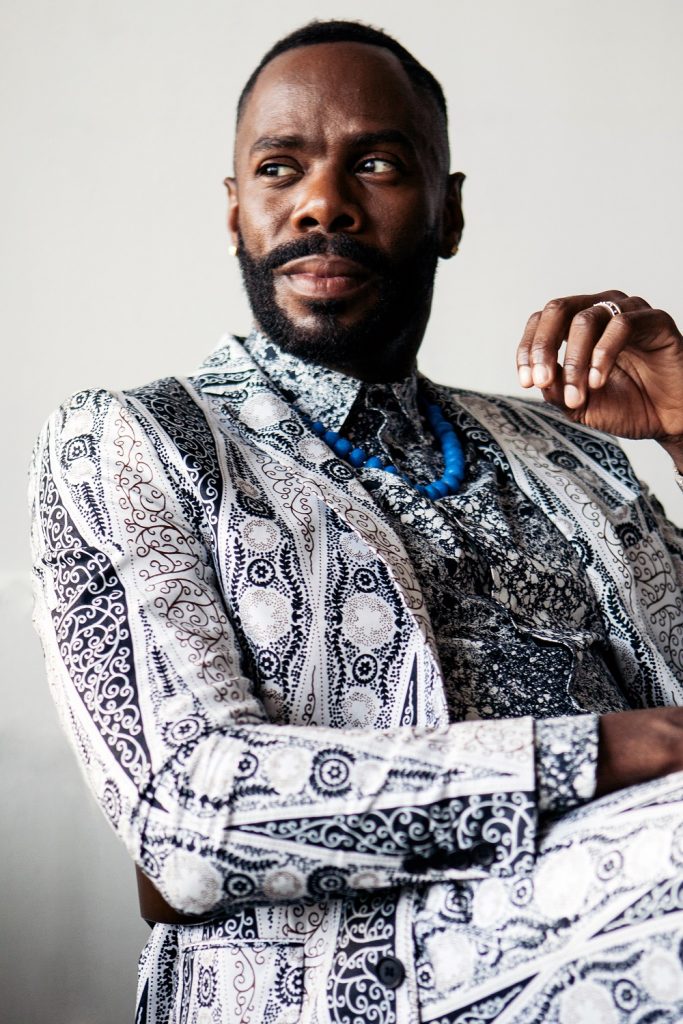Colman Domingo talks gay stereotypes and how Victor breaks the mould in ‘Fear The Walking Dead’.

This interview was first published in Attitude issue 275, October 2016.
The Walking Dead franchise is one of US TV’s biggest shows, regularly drawing in ten million viewers a week. Attitude speaks exclusively to Colman Domingo, who plays gay character Victor in spin-off Fear the Walking Dead…
In Fear the Walking Dead – the spin-off from the incredibly successful zombie apocalypse drama The Walking Dead – Colman Domingo plays Victor, an enigma of a man who, in the course of the first series was revealed as cunning, manipulative, masterful and, almost coincidentally, gay. Or at least in a relationship with a man. His motives for that relationship remain murky, as do most motives in the world of the Walking Dead.
“I wonder if he even categorises himself as being gay,” Domingo ponders of his character. “He does not live by society’s rules. Even his relationship… isn’t a typical love story. It’s more complex than that. For me, it’s about seeing a character who’s complex in every single way. I don’t think people will have seen a character like Victor Strand on television who is in a same-sex relationship. There’s an ambiguity in him as there are many more colours and levels to sexuality, gender expression and that’s what I’m interested in.”
Indeed, Domingo seems thoroughly captivated by Victor, who is, by turns, charismatic and monstrous. This is down to Domingo’s performance and what the actor calls the “keen intelligence” of the writers to present a layered and rounded character surrounded by other layered, rounded characters. When you consider how, even five years ago, characters in TV drama who were gay were defined solely by their sexuality, this advance is significant.
“LGBT characters have, broadly, been stereotyped and we haven’t seen three-dimensional characters often,” Domingo says. “Even as the actor playing him, I don’t think it’s a big deal that Victor is in a same-sex relationship. He’s actually done a lot more than that before you find out that he’s in a same-sex relationship. It shows who we are in the world now – that gay and lesbian characters needn’t be on the sidelines but at the centre of a story. They’re not just the funny friend or someone who does makeovers. They’re complex human beings who have a pulse and a life like everyone else. That they’re in a same-sex relationship is barely a percentage of who they are.”
 Colman as Victor in Fear The Walking Dead,
Colman as Victor in Fear The Walking Dead,
Domingo counts himself fortunate in that he hasn’t played a lot of sassy best friends. Instead, he’s played “warriors and kings and Shakespearean clowns” and Victor was Domingo’s first role on returning to the US after performing on the London stage in The Scottsboro Boys, the brilliant musical about the black Alabama teenagers falsely accused of, and imprisoned for, raping two white women in 1931. So Domingo is no stranger to political roles. As Fear of the Walking Dead shares many themes with its mothership show – primarily that the real monsters aren’t the zombies at all, but the other, human survivors of the apocalyptic catastrophe – how does Domingo feel about Victor being one of the drama’s biggest monsters?
“I don’t think that Victor is a monster. I think that everyone has the possibility of turning into a monster. That’s actually everyone across the board. Everyone is being challenged in an apocalypse and I’m sure they would, if God forbid that happened today or tomorrow, figure out who they are and to what extent what they would do to survive. Things that may seem monstrous. Whatever human is, human does, I think that is what the show is examining. We always think it is the Other, but the Other is also yourself, you could possibly do those things as well. That’s what I think.”

That said, Victor is a character who has come from nothing to become one of the super-rich, one of the so-called “one per cent” whose ambitions and appetites have brought the world to the conflicted, damaged and possibly doomed state in which it finds itself. Is this the ultimate product of “the American dream” – which has proved a nightmare for everyone?
“I like to think that Victor is a little bit of both. I think he is a symbol not only of the American dream, but a symbol of Western civilisation, of capitalism. He is from a place where you are supposed to strive, it is set up that way. America is set up that way. Europe is set up that way. You are supposed to be a striver and succeed. Then there is the fall of that civilisation, and then you have to rediscover and reinvent who you are and build from nothing again; go back to the basics of humanity of fire, water and stone, you know, so I think that’s what the show hopes to achieve and an examination of who we are and of humanity.”
If drama is all about jeopardy, then the stakes don’t get higher than what it means to be human at the end of the world. But doesn’t Domingo get dragged down with all that apocalyptic thinking? It even got to Buffy in the end.
“I think the only way you can get out of bed in the morning is if you have hope. Even if you think the world is doomed. Even if you look at politics, racial tensions, war, the way women are treated in some countries. Anyone can wake up and believe “oh, the world is doomed” or “oh, we’re headed towards Armageddon,” you know, certain people are coming to a rise in power, certain things happening in our world. But that said. I am a very hopeful person and I always believe there is good in the world. Even after a disaster, or when something so unsettling happens that your faith is shaken to the core – I still have hope.”
Words by – Gareth McLean
Photography – Erik Carter
Fear the Walking Dead airs on AMC on BT
